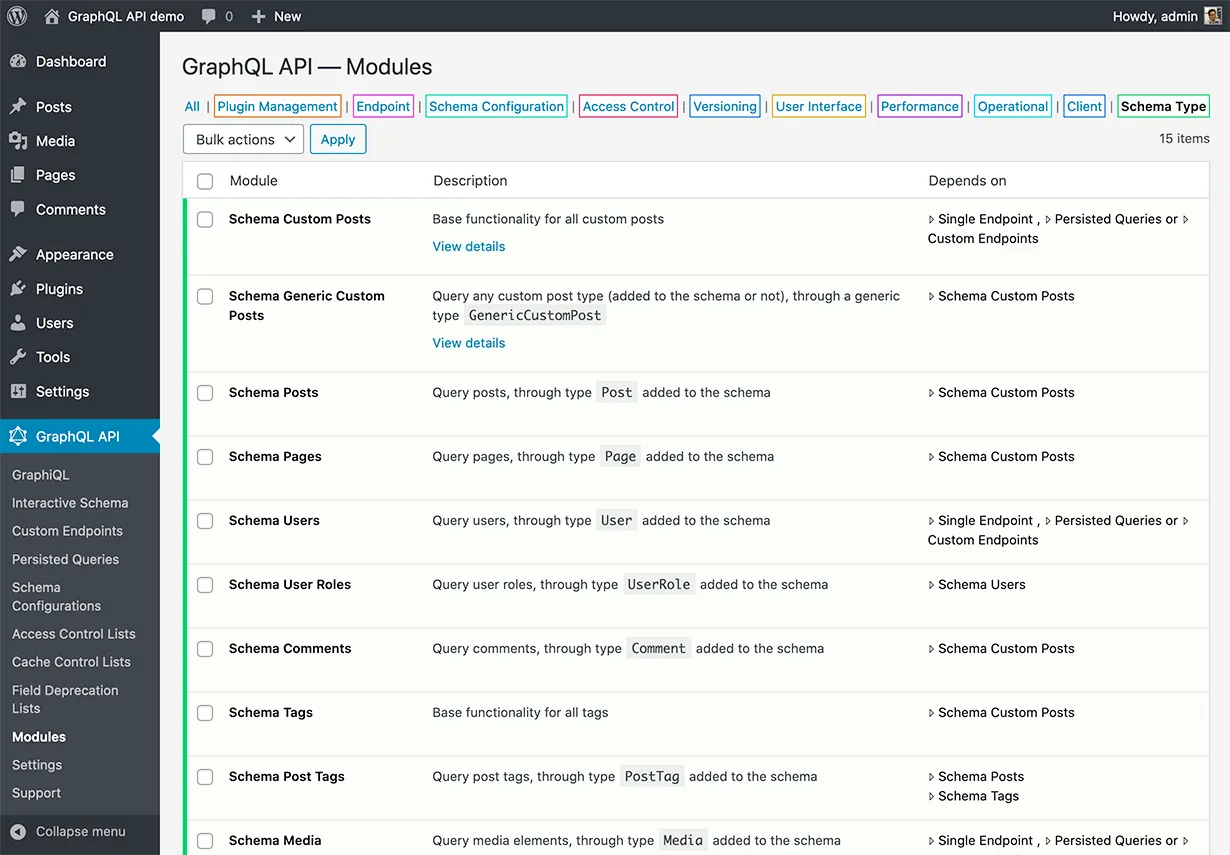Migrating your app from WordPress to another PHP framework or CMS
The GraphQL schema provided by Gato GraphQL contains fields to fetch WordPress data: posts, users, comments, tags, categories, etc.
The code in the PHP resolvers' fetching WordPress data depends on WordPress; that code cannot run on a non-WordPress app.
However, Gato GraphQL has each of these resolvers implemented via 2 packages:
- A "vanilla" PHP one, containing all generic code
- A WordPress-specific one, containing the actual invocations to WordPress methods that satisfy that resolver
For instance, in this GraphQL query:
{
posts {
id
title
}
}...the logic for fetching posts is composed of:
- The
Root.postsfield: It lives on the genericpostspackage - Its resolution for WordPress via the
get_postsmethod: It lives on the WordPress-specificposts-wppackage.
The code split between non-WordPress/WordPress packages is something around 80/20%, meaning that 80% of the code is reusable with another framework/CMS, and only 20% of the code would need to be reimplemented.
Moreover, all functionality in Gato GraphQL is shipped via modules, and modules can be enabled/disabled at will.

Modules is a feature implemented for security purposes: If you don't need to expose user data in your public API, then you can disable the Users module, and the corresponding fields (such as Root.users) will never be added to the schema.
Modules are directly mapped to underlying PHP packages. As such, when running Gato GraphQL as a standalone app, we can selectively load those modules/packages that we need, and none of the other ones.
For instance, if you application only prints data for posts, categories and tags, then only the posts-wp, categories-wp, and tags-wp packages (along with their dependencies) need to be loaded.
Then, when migrating away from WordPress (say, to Laravel, or Symfony), only those 3 WordPress-specific packages would need to be reimplemented for the new framework/CMS, and nothing else.
